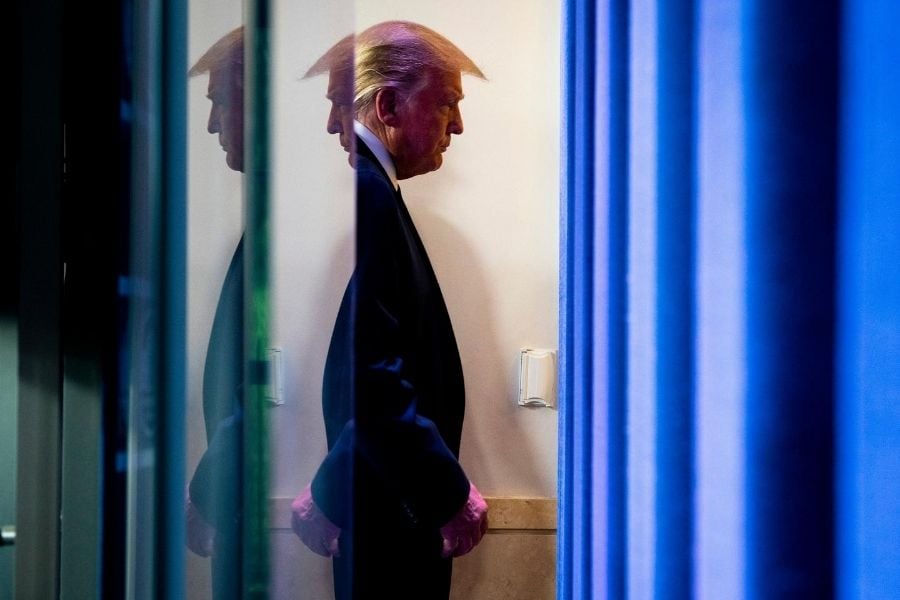
In a first, Facebook takes down Trump's misleading Covid-19 video
Posted by the President's campaign on Wednesday, the video claims that children are immune to the coronavirus
 President Donald Trump after a news conference at the White House in Washington, Aug. 4, 2020. Facebook took down a video posted by the Trump campaign on Wednesday in which he claimed children were immune to the coronavirus, a violation of the social network’s rules against misinformation around the virus. Image: Doug Mills/The New York Times
President Donald Trump after a news conference at the White House in Washington, Aug. 4, 2020. Facebook took down a video posted by the Trump campaign on Wednesday in which he claimed children were immune to the coronavirus, a violation of the social network’s rules against misinformation around the virus. Image: Doug Mills/The New York Times
WASHINGTON — Facebook took down a video posted by the campaign of President Donald Trump on Wednesday in which he claimed children were immune to the coronavirus, a violation of the social network’s rules against misinformation around the virus.
It was the first time Facebook has removed a post by Trump’s campaign for spreading misinformation about the coronavirus, although the social network has previously taken down other ads and posts by the campaign for violating other policies. In June, for example, Facebook took down campaign ads that used a Nazi-related symbol, which broke the company’s rules against organized hate.
The action on Wednesday did not signal a change to Facebook’s fierce defense of free expression. Mark Zuckerberg, Facebook’s chief executive, has said the social network is not an arbiter of truth and that it is in the public’s interest to see what political leaders post — even if they include falsehoods by politicians like Trump. Zuckerberg has stood by the position, even as other social media companies like Twitter have ramped up their enforcement of the president’s speech.
The stance has put Facebook under tremendous pressure from employees, advertisers and civil-rights leaders, who have opposed permitting Trump to spread falsehoods around mail-in voting on the site and to allow comments and threatening language around the Black Lives Matter protests to remain up.
The video that Trump’s campaign posted on Wednesday was of an interview held earlier in the day with Fox News. In the clip, he pressed for the opening of schools this fall, arguing that children were “virtually immune” from the coronavirus. That theory is not supported by most medical experts.
©2019 New York Times News Service




